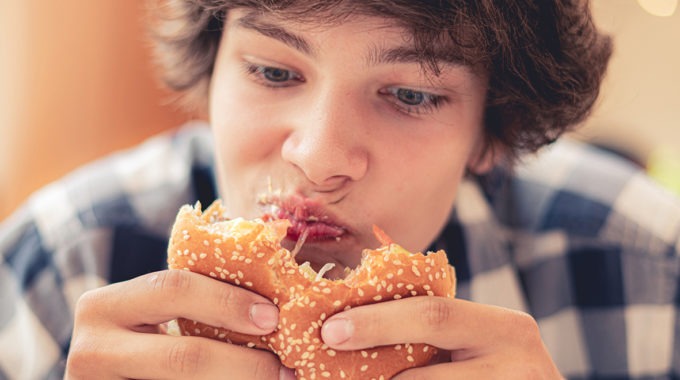Junk food linked to teen sleep problems
Fast food and soft drinks have been linked with poor sleep quality in teenagers, potentially impacting wellbeing and cognitive development, says a new Australian study.
University of Queensland School of Health and Rehabilitation Sciences researcher Associate Professor Asad Khan says frequent consumption of soft drinks and fast food is strongly associated with sleep disturbance in adolescents around the world.
“This is the first study to examine unhealthy diets and stress-related sleep disturbance on a global scale in high school students from 64 countries,” Dr Khan says.
Overall, 7.5 percent of adolescents reported stress-related sleep disturbance, and this was more common among females than males. The study also found that sleep disturbance increased with more frequent consumption of carbonated soft drinks, which often contain caffeine, as well as fast foods, which are traditionally energy-dense and nutrient-poor. Teens who drank more than three soft drinks per day had 55 percent higher odds of reporting sleep disturbance than those who only drank one soft drink a day.

“Males who ate fast foods on more than four days per week had 55 percent higher odds of reporting sleep disturbance than those who only ate fast food once a week, while the odds were 49 percent higher in females,” Dr Khan says. “Frequent consumption of soft drinks more than three times a day, and fast foods more than four days per week, were significantly associated with sleep disturbance in all but low-income countries.”
Teens in high-income countries had the highest association between frequent intake of soft drinks and sleep disturbance. Females in these countries showed the biggest connection between regularly eating fast foods and sleep problems.

Dr Khan says the findings are of particular concern as poor quality sleep has an adverse impact on adolescent wellbeing and cognitive development.
“The targeting of these unhealthy behaviours needs to be a priority of policies and planning,” he says. “Creating school environments to limit access to soft drinks and fast foods and introducing a sugar tax to lessen the sales of soft drinks may be beneficial.”
Dr Khan says family can also play a role in promoting healthy eating, as the adoption and maintenance of children’s dietary behaviours are influenced by their family environment.









